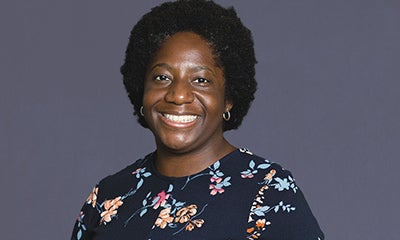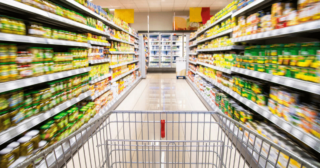- Resources
- A new tool can help companies create safe and sustainable packaging, driving the circular economy forward
Resources
A new tool can help companies create safe and sustainable packaging, driving the circular economy forward
Published: April 21, 2022 by EDF Staff
Last week, Walmart announced the launch of the Circular Connector, a new tool that will help brands access safer, environmentally sustainable packaging options.

Director of Consumer Health
Sustainable packaging initiatives have been on the radar for many retail giants in the consumer product industry, and for good reason: Packaging changes are often the easiest thing to change when trying to make products more environmentally sustainable. Many companies have made packaging-specific goals as part of efforts to reduce the environmental impacts of their global supply chains. But these commitments are often set in a vacuum, without concrete plans to turn pledges into progress, which is why a lot of 2020 packaging targets came and went unmet.
The Circular Connector aims to tackle this challenge by providing brands with a database of suppliers that offer sustainable packaging options. And for the first time ever, Walmart is making sure that chemical safety is part of the definition of sustainable packaging, encouraging suppliers to offer options that are free of high priority toxic chemicals – an often overlooked piece of the packaging problem.
Investors and customers are pushing companies to set more ambitious goals for reusable, toxic-free packaging. Walmart, which sells millions of products each day and has roughly 100,000 suppliers, is using its scale to meet growing stakeholder demands for safer and more environmentally sustainable packaging by striving to achieve several sustainable packaging goals in the U.S. and globally.
Traces of packaging waste are in our landfills, oceans and even bodies
We’re at a tipping point. Packaging is filling up landfills and polluting our oceans. Today, 450 million tons of plastic is produced per year, with 54 million tons ending up in the environment as pollution.
This waste is a huge problem, but there’s an equally important, though less visible problem. Chemicals inside the packaging materials. For instance, more than 10,000 distinct chemicals are used in plastics manufacturing and over 2,000 of those are dangerous to human health.
Some common packaging ingredients, such as additives to make plastics more pliable, are linked to chronic health issues – like infertility, developmental issues, endocrine disruption, and cancer. For example, PFAS, a class of chemicals that is seriously harmful to humans, is ubiquitous in packaging, appearing in plastic films, bottles and paper packaging. And the scary truth: Every single American (99%) has PFAS in their bodies.
Innovative tools are showing the possibilities around safe and sustainable packaging
Over eighty percent of environmental and economic impacts are determined during the design phase, which means companies must focus on using safe and sustainable materials for packaging from the start. Solutions narrowly focused on reducing end-of-life impacts aren’t enough to fully answer our packaging problem.
Fortunately, more innovative, collaborative efforts are coming to market to help companies speed up the transition to retail packaging that is sustainable and safer:
Building upon Walmart’s previous sustainable packaging endeavors, the Circular Connector will directly connect innovative sustainable packaging suppliers to Walmart’s thousands of private and national brands looking for solutions. As part of their criteria for sustainable packaging, Walmart is encouraging its suppliers to avoid a list of high priority chemicals, like BPA and phthalates, developed by EDF. Companies that create packaging innovations free of these chemicals can offer brands options that tick off even more boxes for sustainable packaging.
The Understanding Packaging (UP) Scorecard is another tool to widen adoption of packaging that is safer and environmentally sustainable, specific to the food industry. The UP Scorecard enables users to compare commonly used foodware and food packaging materials against factors like the presence of harmful chemicals, the carbon footprint, and water use, to help food industry professionals make more sustainable purchasing decisions.
With sophisticated tools like the Circular Connector and the UP Scorecard available for companies to use, every single company can and should make sure that its packaging is sustainable and safer.
